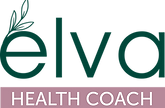Burnout, Overwhelm & the Brain: What My London Trip Taught Me
- Elva O'Conaire
- Apr 16, 2025
- 3 min read
Updated: Aug 7, 2025
In November 2024, I took a trip to London with my mum, sister, aunt, and cousins—a weekend I had really been looking forward to. It was a chance to spend time together, explore the city, and take a break from the usual routine. But despite the excitement, I found myself struggling in ways I hadn’t expected.
On a crowded subway, surrounded by people, noise, and movement, I felt my chest tighten. My breathing became shallow, and before I knew it, I was in tears. Two days later, on my flight home, turbulence triggered the same reaction. I couldn’t shake the feeling that something was wrong. Why was this happening?
At first, I thought it was anxiety. But looking back, I realised it was something deeper—burnout.
I wasn’t just reacting to the situations themselves; my body was responding to months of being stretched too thin. Long before I even stepped on that plane, I had been running on empty.
Years ago, I lived in Toronto and took subways daily without a second thought. So why was this different? The answer became clear: my nervous system had taken a hit. I had been operating in survival mode for far too long—and my body had reached its limit.
The Hidden Cost of Pushing Through
I know I’m not alone in this. So many parents and professionals are stretched thin, carrying invisible loads of responsibility. We push through exhaustion, telling ourselves, It’s just a busy season. But when stress builds without space to recover, our bodies and minds start to show the strain.
Burnout doesn’t just show up as tiredness—it can affect every part of how we function:
Our ability to cope with everyday stress
Our mood, patience, and emotional resilience
Our focus and decision-making
Our physical health (sleep issues, tension, headaches, low immunity and more)
Then it might be time to pause and check in with yourself. Because the reality is, we can’t pour from an empty cup.
What I Learned — and What Might Help
That trip made me realise I needed to change how I was supporting myself. Not just in moments of crisis, but in the day-to-day habits that had slowly drained me. Some of the things that helped included:
Taking intentional breaks – Rest isn’t a luxury; it’s necessary. Even small pauses matter.
Setting boundaries – Not everything needs to be done immediately, and not everything needs to be done by you.
Recognising when I needed rest vs. movement – Sometimes, slowing down is more productive than pushing through.
Letting go of the guilt – You don’t have to do it all. And if you need to rest, you’re not failing—you’re human.
If you’ve ever felt stretched too thin or like stress is quietly catching up with you, you’re not the only one. Burnout isn’t a sign of weakness — it’s often the result of carrying too much, for too long, without enough support. Sometimes, the most powerful thing you can do is allow yourself to pause.
If you’re ready to take that pause, I offer 1:1 and group coaching to help you build more energy, ease, and balance into your life. You can book a free health history session or learn more at www.elvahealthcoach.com.
Want to explore the deeper connection between burnout and the disconnection we often feel from ourselves and others?
You might like my recent blog: Burnout & Connection — What Often Goes Unseen.




Comments